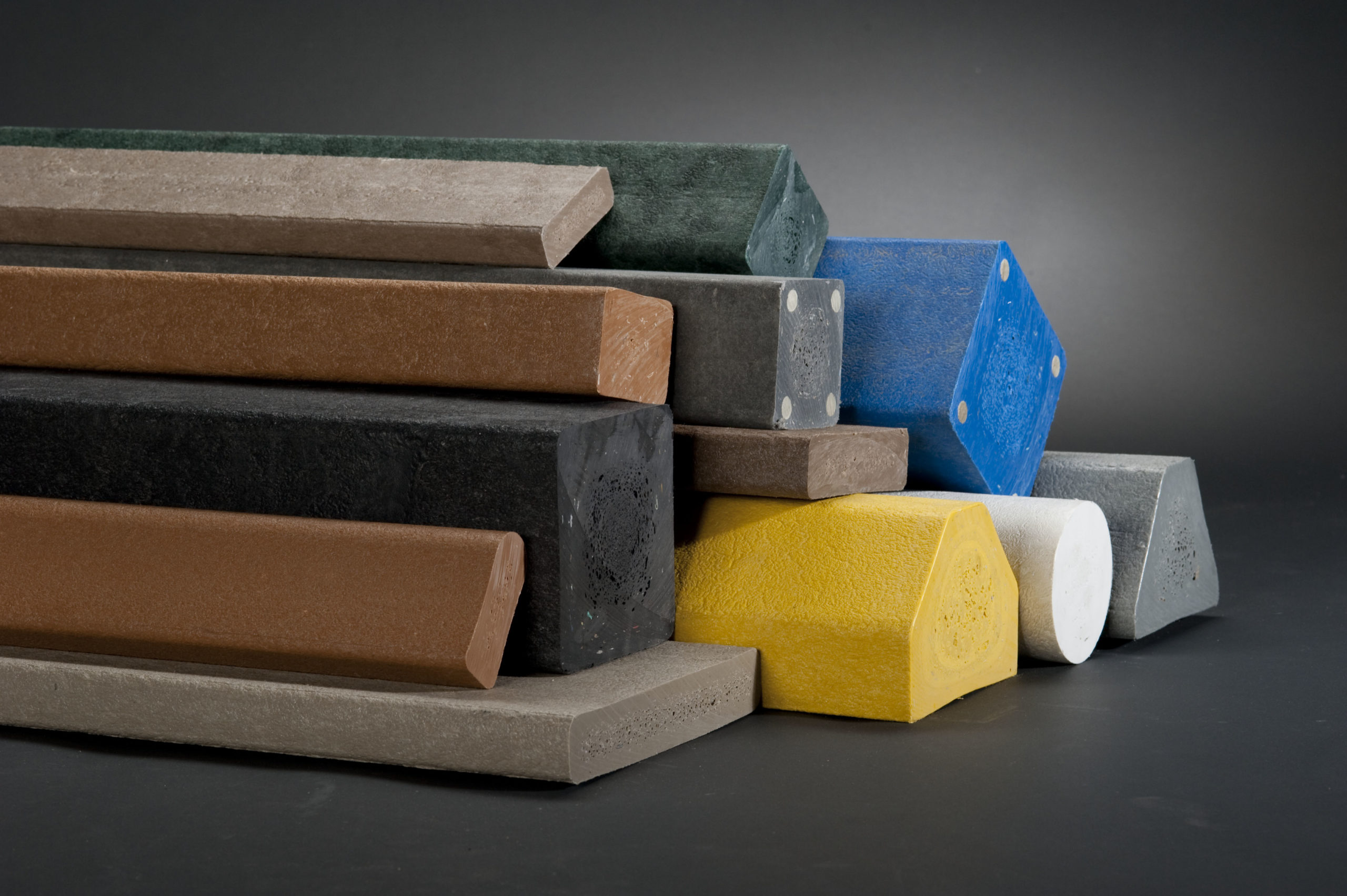Checking Out the Uses and Advantages of Recycled Composites in Modern Industries
The combinations of recycled materials with advanced composite modern technologies offers an appealing opportunity for boosting sustainability, resilience, and cost-efficiency across different sectors. As markets look for innovative services to attend to ecological worries and boost functional performances, the incorporation of recycled composites emerges as a compelling option.
Ecological Advantages of Recycled Composites
The application of recycled composites in modern industries provides considerable environmental benefits, contributing to the decrease of waste and the preservation of all-natural sources. By incorporating recycled composites right into making processes, sectors can reduce their reliance on virgin products, thereby minimizing the amount of waste generated and the energy required for removal and production. This shift in the direction of making use of recycled composites helps in drawing away materials from garbage dumps, reducing the concern on waste administration systems, and reducing greenhouse gas discharges connected with standard production techniques.
Additionally, making use of recycled compounds promotes the conservation of natural deposits such as hardwood, minerals, and water, which are often depleted via the removal and handling of basic materials (composites). By extending the lifespan of products with recycling, industries can aid protect communities and biodiversity by decreasing the need for new sources. Generally, the adoption of recycled compounds in modern sectors plays a vital role in advertising sustainability and alleviating the environmental effect of production processes
Boosted Toughness in Product Production
With a concentrate on durability and robustness, integrating recycled compounds into item manufacturing processes boosts sturdiness and sustainability. By utilizing recycled composites, manufacturers can create products that are not only strong but likewise resistant to deterioration, making them ideal for long-lasting usage in numerous industries. The mix of different materials in recycled compounds can commonly lead to improved strength and durability contrasted to conventional materials, giving an economical solution for creating long-lasting products.
Among the key advantages of utilizing recycled compounds in item manufacturing is the capability to customize the product residential or commercial properties to fulfill particular longevity demands. By changing the make-up and production strategies, producers can personalize the recycled compounds to hold up against harsh environmental conditions, heavy loads, or frequent use without compromising on performance. This flexibility in style and production enables the development of extremely long lasting items that preserve their stability gradually, minimizing the requirement for regular substitutes and eventually adding to a much more lasting manufacturing process.
Cost-Effectiveness and Financial Advantages
Including recycled composites into item production not only enhances longevity and sustainability but likewise supplies significant cost-effectiveness and economic advantages. Making use of recycled composites can result in minimized product costs as recycled materials are usually less costly than virgin materials. Furthermore, reusing composite materials can reduce waste disposal costs and decrease the demand for landfill room, adding to overall price financial savings for markets.

Advancement and Style Flexibility With Recycled Compounds
Making use of recycled composites in modern industries provides exceptional chances for development and design flexibility. By incorporating recycled materials into composite manufacturing procedures, companies can press the boundaries of typical style constraints and check out new opportunities. The flexibility of recycled compounds permits the creation of intricate forms and structures that could not be attainable with traditional materials.
One of the vital benefits of recycled compounds is their ability to be molded right into various forms, giving developers the liberty to trying out special forms and sizes. composites. This adaptability opens up a globe of innovative opportunities, making it possible for the advancement of lightweight yet long lasting products that satisfy the specific demands of different industries
Moreover, making use of recycled compounds promotes sustainable methods and supports the round economic climate by decreasing waste and decreasing the environmental effect of manufacturing procedures. This emphasis on green design options straightens with the expanding fad towards sustainability in contemporary markets, making recycled compounds useful source a beneficial source for innovative and forward-thinking business.
Applications Throughout Different Industries
Recycled compounds discover impactful and varied applications throughout a vast array of industries as a result of their unique residential properties and sustainability benefits. In the vehicle field, these materials are significantly made use of for making light-weight and durable elements, improving fuel efficiency and reducing carbon discharges. The aerospace industry take advantage of recycled compounds in the manufacturing of aircraft parts, where the materials' strength-to-weight ratio is crucial for ensuring safety why not look here and efficiency. In building, these composites are utilized for developing solid yet green building materials, adding to lasting facilities development. The renewable power sector uses recycled compounds in wind turbine blades and photovoltaic panels, using their toughness and resistance to rough ecological conditions. Additionally, the marine industry utilizes these products for making watercraft hulls and parts, using enhanced longevity and deterioration resistance. The convenience and sustainability of recycled composites make them useful across different markets, driving technology and environmental stewardship. composites.
Verdict
In conclusion, the use of recycled composites in modern industries offers considerable environmental benefits, improved durability in product production, cost-effectiveness, and financial benefits. In addition, using recycled composites permits innovation and style adaptability across various industries. On the whole, the fostering of recycled compounds presents a sustainable and practical service for meeting the requirements of the industry while also reducing ecological effect.

One of the vital benefits of making use of recycled compounds in product manufacturing is the capability to customize the product residential properties to satisfy particular longevity demands. Making use of recycled compounds can lead to decreased material expenses as recycled products are often much less costly than virgin materials. The aerospace sector advantages from recycled composites in the production of airplane components, where the materials' strength-to-weight proportion is explanation critical for making sure safety and security and efficiency.